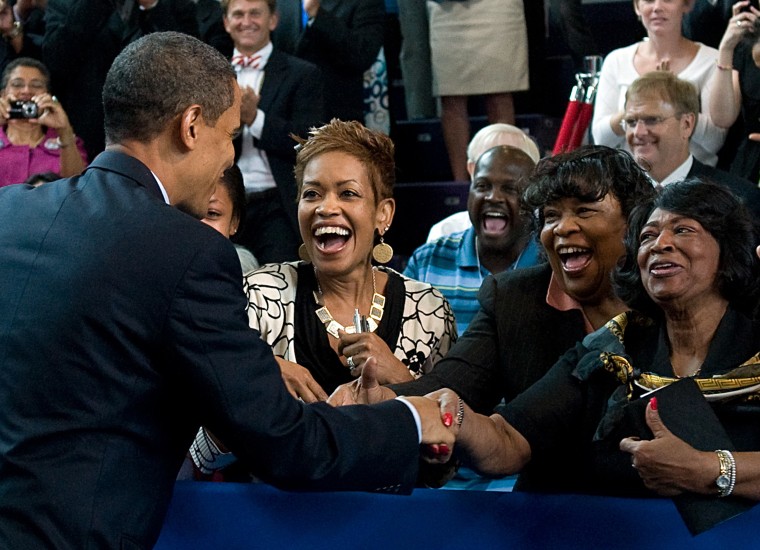After weeks of turmoil, House Democrats reached a shaky peace with the party's rebellious rank-and-file conservatives Wednesday and cleared the way for a vote in September on sweeping U.S. health care legislation.
Bipartisan Senate negotiators reported progress, too, on a bill said to extend coverage to 95 percent of all Americans without raising federal deficits.
"We're on the edge, we're almost there," said Sen. Charles Grassley of Iowa, the senior Republican involved in the secretive talks, although a fellow party participant, Sen. Mike Enzi , dissented strongly.
Sen. Max Baucus, a Democrat and chairman of the Finance Committee, said preliminary estimates from congressional budget experts showed the cost of the emerging Senate plan was below $900 billion and would result in an increase in employer-sponsored insurance — conclusions that may reassure critics who fear a bloated bill that prompts businesses to abandon the coverage they currently provide.
In the House, Democratic leaders gave in — at least temporarily — to numerous demands from rank-and-file rebels, so-called Blue Dogs from the conservative wing of the party who had been blocking the bill's passage in the last of three committees.
The House changes, which drew immediate opposition from liberals in the chamber, would reduce the federal subsidies designed to help lower-income families afford insurance, exempt additional businesses from a requirement to offer insurance to their workers and change the terms of a government insurance option.
At their core, both the House bill and the plan under negotiation in the Senate are designed to meet President Barack Obama's goals of spreading health coverage to millions who now lack it, while slowing the skyrocketing growth in health care costs nationally.
Obama has placed the issue atop his domestic agenda, and as recently as two weeks ago was pressing the House and Senate insistently to pass separate bills by the end of July or early August.
The United States is the only developed nation that does not have a comprehensive national health care plan for all its citizens, and Obama campaigned on a promise to offer affordable health care to all Americans. However, the recession and a deepening budget deficit have made it difficult to win support for costly new programs.
About 50 million of America's 300 million people are without health insurance. The government provides coverage for the poor, elderly, military veterans and many children, but most Americans rely on private insurance, usually received through their employers. However, not all employers provide insurance and not everyone can afford to buy it. With unemployment rising, many Americans are losing their health insurance when they lose their jobs.
The White House issued a statement praising the development in the House, and with appearances in the states of North Carolina and Virginia, the president sought to minimize the significance of the slippage in his timetable.
"We did give them a deadline, and sort of we missed that deadline. But that's OK," Obama said. "We don't want to just do it quickly, we want to do it right."
Rep. Mike Ross, a leader of conservative and moderate Democrats, said the changes agreed to by the leadership would cut the cost of the House bill by about $100 billion over 10 years.
While Baucus reported the Senate Finance measure carried a price tag of under $1 trillion, congressional officials said it included only the cost of the first year of a 10-year, $245 billion program to increase doctor fees under Medicare. House Democrats used a similar sleight of hand, excluding the entire $245 billion when claiming their measure wouldn't add to the deficit.
The House deal was worked out over hours of talks that involved not only Democratic leaders but also White House officials eager to advance the bill. Senior congressional aides cast it as a temporary deal, saying leaders had not committed to support it once the bill advances to the floor of the House.
In the Senate, Baucus, Grassley and two other senators from each party have been negotiating for weeks in hopes of agreeing on compromise legislation. Both men face considerable pressure from their respective parties — Baucus not to stray too far from Democratic objectives, Grassley not to hand the president a political victory.
